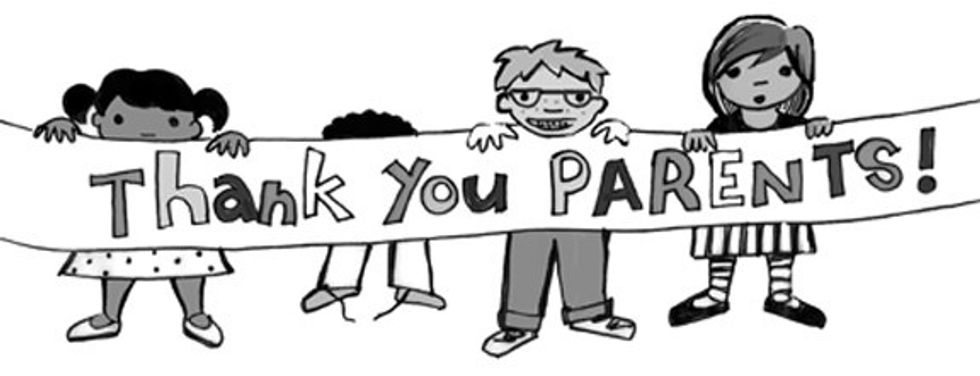Throughout my pursuit of getting my teaching degree, I have been taught that parental involvement is huge when it comes to education. When you think about parental involvement, it seems like a no-brainer, doesn't it? For you, it probably wasn't a big deal. Your parents were always involved in everything! But there are some children in this country whose parents are not in any way involved in their child's education, and that needs to change.
Did you know that students with parents who are involved in their education tend to have fewer behavioral problems and better academic performance, and are more likely to complete high school than students whose parents are not involved?
If you're a parent looking to get involved in your child's education, or a teacher wanting to share this information with parents, look no further. Joyce Epstein of the Johns Hopkins University Center on School, Family and Community Partnerships, has divided school parent involvement programs into six broad categories:
1. Parenting
Well of course, parenting is the number one thing! Parent your child, discipline your child, hold high expectations for your child. I am so very thankful for my parents, who pushed me to be the best I could be and never let me quit anything without trying my best. Schools can help families with their parenting skills by providing information on children's developmental stages and offering advice on learning-friendly home environments.
2. Communicating
It's important that schools are working to educate families about their child's progress and school services and providing opportunities for parents to communicate with the school. I have also been taught that communicating with parents on a weekly basis is HUGE when it comes to progress monitoring. Parents really want to know how their child is doing and what they can do at home to help! Which brings me to the next point...
3. Volunteering

4. Learning at Home

5. Decision-making
Schools include families as partners in school organizations, advisory panels, and similar committees.
6. Community Collaboration

Parental involvement may seem like a daunting task, but it REALLY benefits your child in more ways than one. Benjamin Franklin once said,
"Tell me, and I'll forget. Show me, and I may remember. Involve me, and I learn."






















